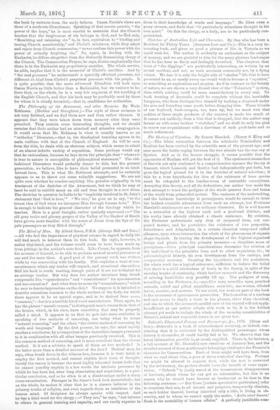The Philosophy of the Atonement, and other Sermons. By Wade
Robinson. (Hodder and Stoughton.)—The style of those sermons is not very finished, and we find them now and then rather obscure. It appears that they were taken down from memory after they were preached. They contain some interesting thoughts, and we should surmise that their author had an attached and attentive congregation. It would seem that Mr. Robinson is what is usually known as an "orthodox " Dissenter,—that is, his theological teaching agrees in its main outlines with that of the Church of England. As will bo soon from the title, he deals with an abstruse subject, which seems to admit of an almost infinite variety of exposition. Some perhaps would say that he rationalises, because he lays down the principle that " whatever is true to nature is susceptible of philosophical statement." The old- fashioned Dissenters would probably demur to this, but the present generation, we believe, like to have their belief presented in an intel- lectual form. This is what Mr. Robinson attempts, and he certainly appears to us to throw out some valuable suggestions. Wo are not quite sure whether he reaches anything like genuine originality in his treatment of the doctrine of the Atonement, but we think he may at least be said to exhibit many an old and true thought in a now dress. The doctrine in question he holds to be " implicitly involved in St. John's statement that ' God is love.'" "We rise," ho goes on to say, "to the truest idea of God when we interpret Him through human love." This is enough to indicate the general character of the theology which he teaches. Here is a good thought, rather quaintly expressed :—" The old gray rocks and gloomy gorges of the Valley of the Shadow of Death have grown more familiar with the name of Jesus from the lips of the pale passengers as they flitted through."


































 Previous page
Previous page